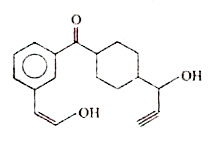Which of the following two reagents form silicates when react with silica (SiO2)?
NaCl and Na2S
NaOH and Na2CO3
Na2SO4 and NaNO3
NaBr and NaHSO4
The correct Answer is:B
To determine which of the following two reagents form silicates when they react with silica (SiO₂), we need to identify the properties of silica and the nature of the reagents provided.
1. Understanding Silica (SiO₂):
- Silica is an amphoteric oxide, meaning it can react with both acids and bases.
2. Identifying the Nature of Reagents:
- We need to analyze the given options to identify which ones are basic or acidic, as SiO₂ will only react with these types of reagents.
3. Analyzing the Options:
- Option A: NaCl and Na₂S
- Both are neutral salts. They do not react with SiO₂.
- Option B: NaOH and Na₂CO₃
- NaOH is a strong base, and Na₂CO₃ is a weak base. Both can react with SiO₂.
- Option C: Na₂SO₄ and NaNO₃
- Both are neutral ionic salts. They do not react with SiO₂.
- Option D: NaHSO₄ and NaBr
- NaHSO₄ is slightly acidic, and NaBr is neutral. They do not react with SiO₂.
4. Reactions with Silica:
- NaOH + SiO₂:
- The reaction produces sodium silicate (Na₂SiO₃) and water.
- SiO2+2NaOH→Na2SiO3+H2O
- Na₂CO₃ + SiO₂:
- The reaction also produces sodium silicate (Na₂SiO₃) and carbon dioxide.
- SiO2+Na2CO3→Na2SiO3+CO2
5. Conclusion:
- The only option that contains reagents that can react with SiO₂ to form silicates is Option B (NaOH and Na₂CO₃).
Final Answer:
The two reagents that form silicates when reacting with silica (SiO₂) are NaOH and Na₂CO₃.
- Silica is an amphoteric oxide, meaning it can react with both acids and bases.
- We need to analyze the given options to identify which ones are basic or acidic, as SiO₂ will only react with these types of reagents.
- Option A: NaCl and Na₂S
- Both are neutral salts. They do not react with SiO₂.
- Option B: NaOH and Na₂CO₃
- NaOH is a strong base, and Na₂CO₃ is a weak base. Both can react with SiO₂.
- Option C: Na₂SO₄ and NaNO₃
- Both are neutral ionic salts. They do not react with SiO₂.
- Option D: NaHSO₄ and NaBr
- NaHSO₄ is slightly acidic, and NaBr is neutral. They do not react with SiO₂.
- NaOH + SiO₂:
- The reaction produces sodium silicate (Na₂SiO₃) and water.
- SiO2+2NaOH→Na2SiO3+H2O
- Na₂CO₃ + SiO₂:
- The reaction also produces sodium silicate (Na₂SiO₃) and carbon dioxide.
- SiO2+Na2CO3→Na2SiO3+CO2
- The only option that contains reagents that can react with SiO₂ to form silicates is Option B (NaOH and Na₂CO₃).
The two reagents that form silicates when reacting with silica (SiO₂) are NaOH and Na₂CO₃.
Similar Questions
Knowledge Check

Which of the following reagents will not react with above compound ?ANa metalBAgNO3+NH4OHCCu2Cl2+NH4OHDNaHCO3Which of the following pairs of reagents will not form ether?
AC2H5Br+C2H5ONaBC2H5Br+C6H5ONaCC2H5Br+(CH3)2CHONaDC2H5Br+CH3COONa
Which of the following is formed when RNH2 reacts with RCHO?
View SolutionWhich among the following is not a silicate
View SolutionWhich of the following metals forms grignard reagent?
View SolutionWhich of the following alkyne can react with Tollen's reagent?
View SolutionWhich of the following alkyne can react with Tollen's reagent ?
View SolutionWhich of the following is formed along with hydrogen when zinc reacts with steam?
View Solution
